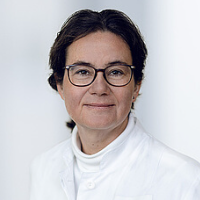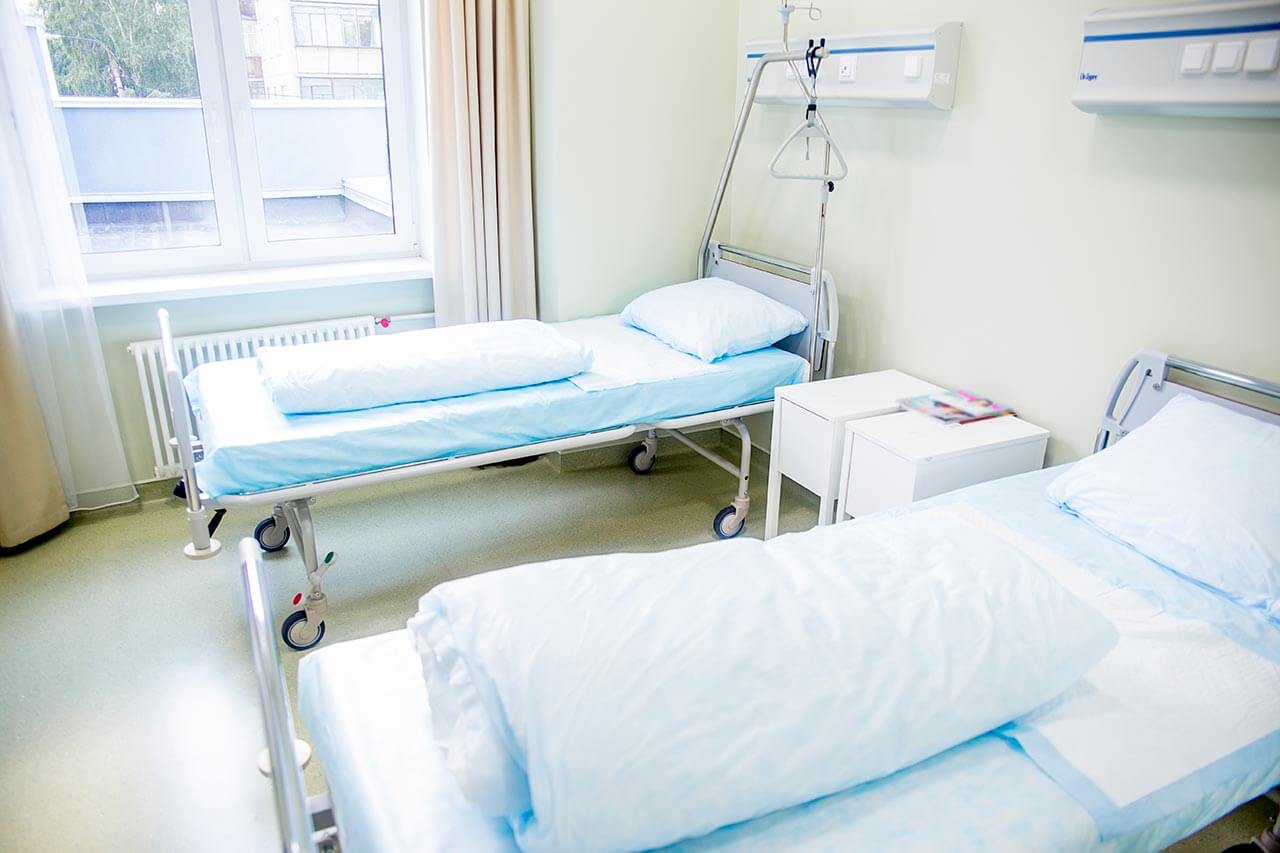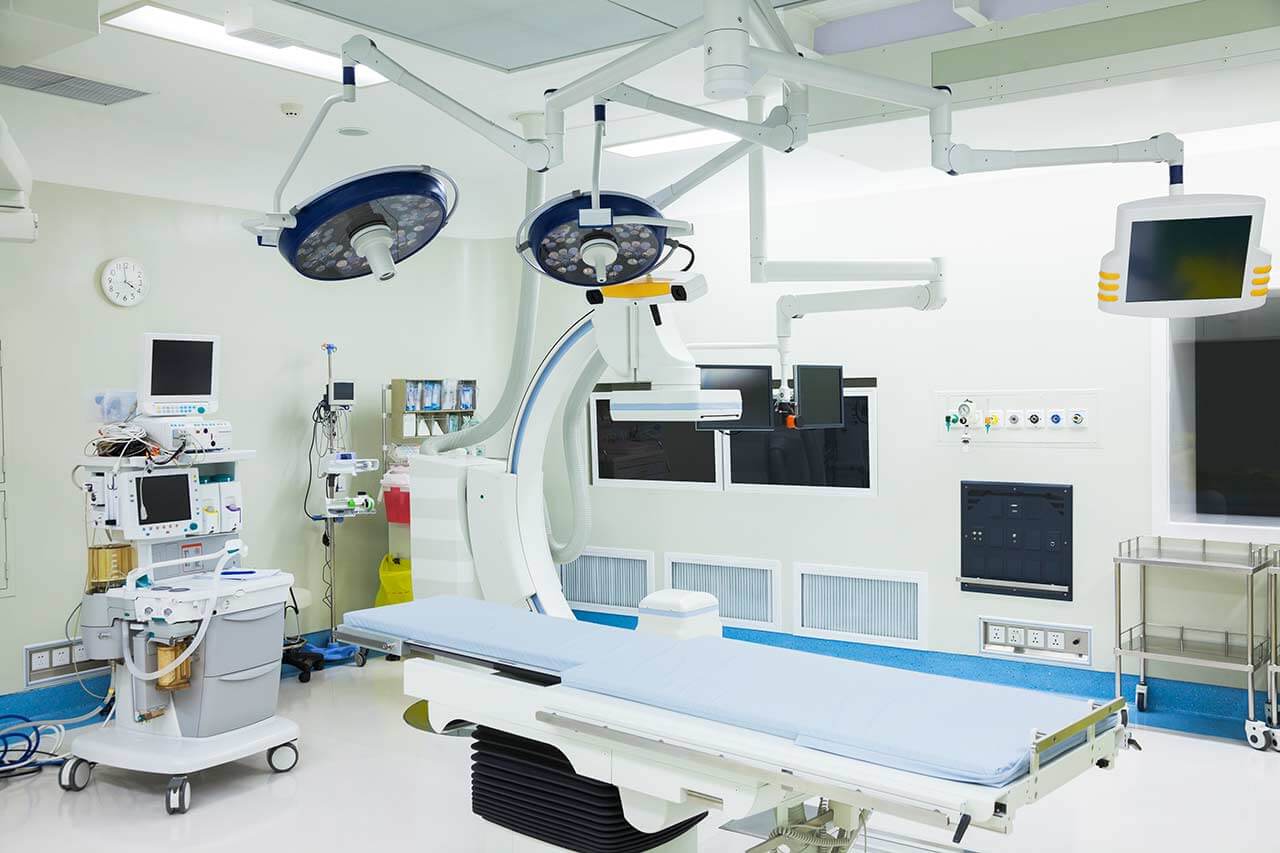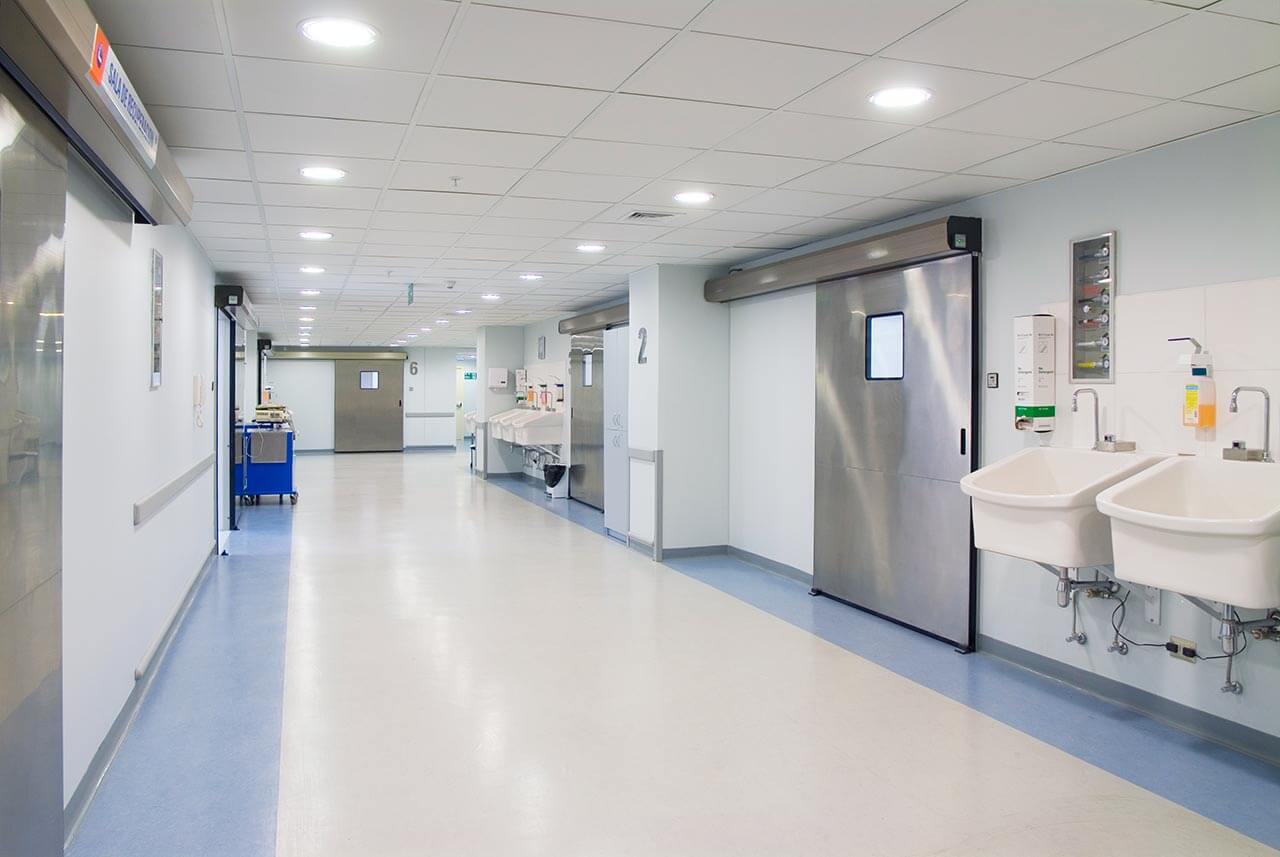
The program includes:
- Initial presentation in the clinic
- clinical history taking
- review of medical records
- physical examination
- laboratory tests:
- complete blood count
- general urine analysis
- biochemical analysis of blood
- inflammation indicators (CRP, ESR)
- indicators blood coagulation
- urine culture
- blood culture
- ultrasound of the urogenital system
- consultation of related specialists
- symptomatic specific treatment
- the cost of essential medicines and materials
- nursing services
- control examinations
- full hospital accommodation
- developing of further guidance
Required documents
- Medical records
- Kidney US (if available)
- MRI/CT scan (if available)
Service
You may also book:
 BookingHealth Price from:
BookingHealth Price from:
About the department
The Department of Nephrology at the University Hospital Oldenburg offers a full range of diagnostic and therapeutic services to patients with kidney disease. Special attention is paid to the treatment of acute and chronic kidney failure. The department also admits patients with such nephrological pathologies as pyelonephritis, glomerulonephritis, urolithiasis, nephroptosis, and kidney cysts. The department has excellent diagnostic facilities for a comprehensive examination of the kidneys: doctors perform a wide range of laboratory tests, ultrasound scans, X-ray scans, computed tomography, and magnetic resonance imaging (in cooperation with the Department of Radiology). As for the treatment, specialists mostly use only pharmacotherapy. In the case of severe kidney dysfunction, the department's nephrology team resorts to renal replacement therapy (dialysis). The Dialysis Unit of the department has been operating since 1974 and has gained exceptional clinical experience in this field. The Dialysis Unit provides all modern types of renal replacement therapy, including hemodialysis, hemofiltration, hemodiafiltration, continuous venovenous hemodialysis, peritoneal dialysis, and plasmapheresis. The department has 28 inpatient beds. The Head Physician of the department is Dr. med. Anke Kulschewski.
Of particular clinical interest to the department's doctors is the treatment of chronic kidney failure, a pathological condition in which kidney function gradually deteriorates. This disease disrupts the filtration, secretory, and excretory functions of the kidneys, leading to serious complications. Chronic kidney failure is most commonly caused by diabetes mellitus, systemic lupus erythematosus, scleroderma, kidney stones, chronic glomerulonephritis and pyelonephritis, and arterial hypertension. In the early stages, chronic kidney failure may be asymptomatic; as the pathology progresses, it causes general malaise, fatigue, dry skin, itching, swelling, high blood pressure, and urinary problems. In the advanced stages, chronic kidney failure manifests as severe intoxication, causing loss of appetite, nausea, vomiting, diarrhea, headache, visual disturbances, and anemia. The diagnostic protocol for suspected kidney failure includes a set of laboratory tests (a complete blood count and a blood biochemistry test, urinalysis, and Rehberg-Tareev test), ultrasound kidney scans, CT and/or MRI kidney scans, and kidney biopsy. The goal of treating chronic kidney failure is to relieve symptoms, slow down the progression of the disease, and improve kidney function. The first-line treatment is drug therapy and diet (limiting the amount of protein, salt, and fluid in the diet). If this treatment fails, hemodialysis is prescribed. This is a procedure that uses a special machine to cleanse the blood of metabolic products and excess fluid.
The department also has gained extensive experience in the treatment of acute kidney failure. The acute form of the pathology is a sudden impairment of renal function, which in most cases is reversible. In cases of acute kidney failure, the patient requires emergency care in the intensive care unit because the pathology is accompanied by rapidly increasing intoxication due to the accumulation of products of nitrogen metabolism and signs of severe water and electrolyte imbalance. Diagnosis of acute kidney failure includes blood and urine tests, ultrasound scans, and kidney biopsy. If the diagnosis is confirmed, emergency treatment is provided in a hospital under close medical supervision. The initial stage of therapy is aimed at eliminating the cause of acute renal function impairment. In case of shock, the doctors of the department replenish the volume of circulating blood and normalize the blood pressure; in case of nephrotoxic poisoning, the patient's stomach and intestines are washed. To quickly remove toxins from the blood, the specialists of the department use hemoadsorption and/or plasmapheresis.
The department regularly admits patients with suspected pyelonephritis, an inflammatory disease of the kidneys of infectious origin. Pyelonephritis causes damage to the tubular structures of the kidneys, which disrupts the process of blood filtration and causes the loss of its biologically significant components. The pathology can occur in acute and chronic forms. In the first case, the patient feels severe pain in the lower back, intoxication develops, the body temperature rises, and chills, weakness, headache, nausea, and vomiting appear. In addition, acute pyelonephritis is often accompanied by cystitis (inflammation of the bladder). Chronic pyelonephritis is sometimes almost asymptomatic; the patient may have nonspecific complaints such as weakness, fatigue, loss of appetite, headache, and frequent urination. If pyelonephritis is suspected, the nephrologists in the department will listen to the patient's complaints, review his or her medical history, perform a series of laboratory blood and urine tests, and perform a kidney ultrasound; in complex cases, CT and/or MRI scans may be required. Conservative methods are used to treat pyelonephritis; in the acute form of the disease, inpatient treatment is recommended. The treatment regimen is prescribed on an individual basis. Anti-inflammatory and antispasmodic drugs and antibiotic therapy are prescribed to relieve pain and stop the inflammatory process in the kidneys.
The department's clinical focuses include the following:
- Diagnostics and treatment of acute and chronic kidney failure
- Diagnostics and treatment of pyelonephritis
- Diagnostics and treatment of glomerulonephritis
- Diagnostics and treatment of kidney stones
- Diagnostics and treatment of nephroptosis
- Diagnostics and treatment of kidney cysts
- Diagnostics and treatment of renovascular hypertension
- Diagnostics and treatment of other kidney diseases
The department's range of therapeutic services includes the following:
- Drug therapy
- Renal replacement therapy (dialysis)
- Hemodialysis
- Hemofiltration
- Hemodiafiltration
- Continuous venovenous hemodialysis
- Peritoneal dialysis
- Plasmapheresis
- Other treatment methods
Curriculum vitae
Higher Education and Professional Career
- Since October 2012 Head Physician, Department of Nephrology, University Hospital Oldenburg.
- 2009 - 2012 Senior Physician, Department of Nephrology, St. Josefs-Hospital Cloppenburg.
- 2006 - 2009 Residency, specialization in Nephrology and Hypertensiology, University Hospital Erlangen-Nuremberg.
- 1998 - 2006 Assistant Physician, Department of Nephrology, St. Josefs-Hospital Cloppenburg.
- 07.2005 Board certification in Internal Medicine.
- 1992 - 1997 Medical studies, Westphalian Wilhelms University of Muenster.
- 1991 - 1992 Medical studies, Free University of Berlin.
Photo of the doctor: (c) Klinikum Oldenburg AöR
About hospital
The University Hospital Oldenburg is a multidisciplinary medical complex offering top-notch services of the European standard. The hospital has 20 specialized departments, 15 highly specialized centers, and more than 10 institutes. The hospital provides services in almost all areas of modern medicine: general and abdominal surgery, cardiac surgery, orthopedics, traumatology, cardiology, oncology, dermatology, gastroenterology, gynecology, mammology, urology, and pediatric and adolescent medicine.
The hospital has 832 beds, and many diagnostic and therapeutic procedures are performed on an outpatient basis. More than 150,000 patients are treated here annually, 37,000 of them receive medical care in a hospital setting. The medical complex has a highly professional medical team of more than 2,900 employees and most departments are headed by professors with extensive clinical experience.
The hospital is home to one of the best comprehensive cancer centers in Germany (Nordwestdeutsches Tumorzentrum), certified according to the requirements of the German Cancer Society (DKG). The center successfully treats breast cancer, prostate cancer, colorectal cancer, pancreatic cancer, esophageal cancer, head and neck tumors, skin tumors, and other oncological diseases. The center uses modern cancer treatment methods with proven effectiveness and also offers allogeneic and autologous bone marrow transplantation for the treatment of severe hematologic diseases (European certification JACIE).
The University Hospital Oldenburg is an expert medical facility in robotic surgery. The hospital has a specialized da Vinci Surgery Center, where gastrointestinal, urological, and gynecological diseases are treated with excellence. Patients are operated on by highly qualified professors with in-depth expertise and extensive experience in robotic surgery.
The University Hospital Oldenburg is one of the leading medical institutions in Germany because it offers excellent medical and technical resources, qualified personnel, and a comfortable infrastructure designed with the needs of patients in mind. The hospital's physicians treat patients with complex clinical cases and achieve incredible results.
The basis of medical care in the hospital is humane attitude to the patient, empathy and understanding of his needs. During the therapeutic process, the patient is surrounded by care and, if necessary, receives professional psychological support.
Photo: (с) depositphotos
Accommodation in hospital
Patients rooms
The patients at the University Hospital Oldenburg stay in comfortable single, double, and triple rooms. Each patient room has an ensuite bathroom with a toilet and a shower. The patient rooms have a TV, a telephone, and Wi-Fi. The patient rooms in the pediatric departments are designed in an appropriate interior to make the young patients feel as comfortable as possible. A child can stay in the same room with one of the parents.
The hospital has an excellent infrastructure: there is a pharmacy, a hairdresser, an ATM, and a library with audio books, DVD movies, and board games.
Meals and Menus
The hospital offers delicious and balanced meals three times a day: breakfast, lunch, and dinner. Since 2022, a new menu "Vitalessen" has been introduced here, which excludes the addition of preservatives, dyes, and flavor enhancers to food. The menu takes into account all preferences and wishes of the patients.
There is also a cozy cafe in the hospital, where you can enjoy a tasty snack or a cup of aromatic coffee or hot tea with dessert.
Further details
Standard rooms include:
![]() Toilet
Toilet
![]() Shower
Shower
![]() Wi-Fi
Wi-Fi
![]() TV
TV
Religion
There is a chapel on the ground floor of the hospital where Catholic and Evangelical services are held regularly. Services by representatives of other religions are available upon request.
Accompanying person
Your accompanying person may stay with you in your patient room or at the hotel of your choice during the inpatient program.
Hotel
You may stay at the hotel of your choice during the outpatient program. Our managers will support you for selecting the best option.




